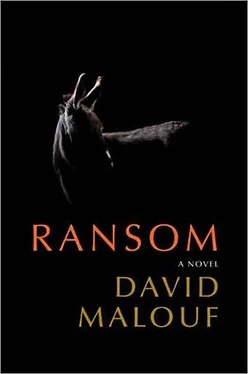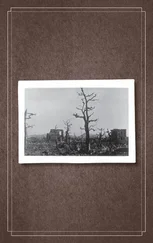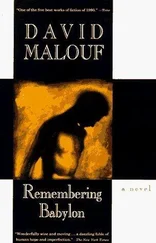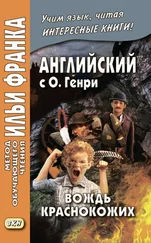What has struck Priam is the strangeness of the moment.
The wolf’s hour, deep in the Achaean camp.
In the distance, a clacking sound: the masts of the Greek ships, away there in the fog, tapping and creaking where they are drawn up in squadrons along the shore.
These attendant strangers with pitcher, bowl and cloth.
And the killer of his son, dread Achilles, standing wrapped in his cloak and watching, as with the sleep barely out of his eyes he dries his fingers, and the rapidly cooling water he has poured over his head drips and darkens the boards of the portico.
All this has the quality of a dream, where in just this way events and objects seem at once both puzzling and glowingly familiar.
But this is no dream. The cramp in his old bones tells him that, and the bulking presence that watches from just feet away: the animal eyes in the broad-browed skull; the big knuckles of the hand, which even in rest, lightly clasped now on the haft of his sword, retains a terrible potential.
What puzzles him is the desire he feels — curiosity again, that new impulse in him — to know more of what is hidden and contrary in this boldest, most ferocious, most unpredictable of the Greeks. Mightn’t that be useful to him later? As a means to saving them — Hecuba, himself, his people — from what otherwise must surely come?
It is in the light of this otherwise that he stands with his brow dripping, while Achilles, who is also puzzled, looks on.
At their late night supper he had been treated with the utmost courtesy. Achilles himself had gone out to choose a good-sized hog, and when it had been brought in and laid on a board, had himself, in honour of his royal guest, jointed the chine and laid the pieces, sprinkled with salt, on the fire-dogs to be roasted.
At the small table in the empty hut — for the Myrmidons had been quietly dismissed — with Automedon and Alcimus to bring in the dishes and mix the wine, they had soon settled on the terms of a truce.
Nine days for the Trojans to make a journey into the forests of Mount Ida and fell the pine logs for Hector’s pyre. In the city, nine days of ceremonial mourning. On the tenth the burning of Hector’s body. The eleventh for the raising of his burial mound. On the twelfth the war would resume.
But it was the eleven days of peace that Priam had felt shining around them as they dipped their hands into the bowl and quietly talked.
Days of sorrow, but also of holiday from the din and dread of battle. A time for living.
Quietly, as they ate together, he and Achilles had discovered a kind of intimacy; wary at first, though also respectful, and at last quite easy, though Priam had continually to remind himself who it was he was breaking bread with, and what lay out there wrapped in a sheet and waiting to be reclaimed.
He had eaten little, but for form’s sake had taken something from each dish.
Achilles, urged on by Automedon, ate heartily, the fingers of his huge hands running with the juices of the meat, and for a moment, as the tight jaw worked, Priam had seen quite clearly the whole terrible machinery of the man, though all their talk was of peace.
So now, refreshed by sleep and by the water he has splashed over his head, Priam turns and they go down together to the yard.
The wagon is already loaded and waiting, the driver beside it, the two mules quiet in the shafts. The little one, Priam is pleased to see, knows him now, and when he scratches her on the top of the head, rubs her ear against his sleeve. In the bed of the wagon, under a rich mantle, the body of his son.
He walks past it, allowing the practice of long years, a lifetime of rigorous discipline, to hide from these invaders what he feels. He extends his hand to his good Idaeus to be helped up.
Surprised again by how quickly all this has grown pleasant and familiar to him. The driver’s calloused hand clutching his own, the two mules, now that they are ready to set off, beginning to be restive and dancing about on the frosty ground. Even the discomfort of the wooden crossbench, which is so hard on an old man’s bones, is a homecoming.
Achilles and his two squires, walking in a group beside the cart, accompany them to the open gate. Groups of guards, newly risen, move about among their cook-fires, looking puzzled as the cart, with its escort, rumbles by them and comes to a halt before the gate. Achilles, at Priam’s side, rests his hand a moment on the support of the canopy.
‘Call on me, Priam,’ he says lightly, ‘when the walls of Troy are falling around you, and I will come to your aid.’
It is their moment of parting.
Priam pauses, and the cruelty of the answer that comes to his lips surprises him.
‘And if, when I call, you are already among the shades?’
Achilles feels a chill pass through him. It is cold out here.
‘Then alas for you, Priam, I will not come.’ It is, Achilles knows, a joke of the kind the gods delight in, who joke darkly. Smiling in the foreknowledge of what they have already seen, both of them, he lifts his hand, and on a word from the driver the cart jolts on out of the camp.
The sun is already up and has begun to burn offthe crisp white groundfrost as they leave the stockade wall behind them. Little birds are twittering in the fog, which crawls so close to the ground that they seem to be setting out across a lake which stretches shoreless in all directions. The carter leans forward over the traces. Calling softly to his mules, he pulls them this way and that as their feet seek out the road.
On either side as they pass, the barrows of the dead. Ghostly figures materialise for a moment among them, then dissolve. Old men and small children are out gathering kindling, which they pile in armfuls onto handcarts or lash to their backs in tottering bundles. The women are scavenging for battle relics — a silver pin, the clasp off a pair of greaves. All this part of the plain has been the scene, at one time or another, of skirmishes or pitched battles in which hundreds of men have fallen and been dragged away.
The women move close to the earth, their hands turning the clods, breaking them up with practised fingers. Too absorbed in their task to care for the cart that looms up out of the fog and rumbles past them.
Later, with the fog-trails thinning and weak sunlight warm on their back, they pass the remains of a village — the charred stumps of an olive grove and a dozen smoke-blackened roofless huts. Half a dozen ragged infants, big-eyed and pot-bellied, come out to stare at them. One, a little girl of three or four, holds out her hand as if begging, but makes no effort to approach.
They go on in silence, slowly, till the sun is high above the horizon and they are clear at last of the camp and all its outposts. Then:
‘Here,’ Priam says quietly. ‘Stop here.’
They are nowhere, as far as the carter can see — in a desolate dry stretch of brush and waist-high mallow — but he pulls at the traces, calls to his mules, and they come to a halt.
Priam, refusing help, climbs down, walks round to the bed of the cart and at last lifts the coverlet from the face of his son.
The carter continues to sit. Joggling the traces lightly in his hand, he gazes fixedly ahead.
Off in the distance, the hills towards Troy are just beginning to develop shadows on their sides; their crests are already touched with gold. Behind him he hears the small sounds Priam is making. They are wordless but he understands them well enough. His thoughts go to the long night he spent, he and the boy’s mother, when they brought his eldest son home and they had sat together in the uncertain lamplight on either side of the broken body. Wordless but not silent.
He snuffles, rubs his nose with the back of his wrist and pulls a little at the left-hand trace, so that Beauty turns her head, just enough for him to catch sight of her round eye, its clear glistening white.
Читать дальше












